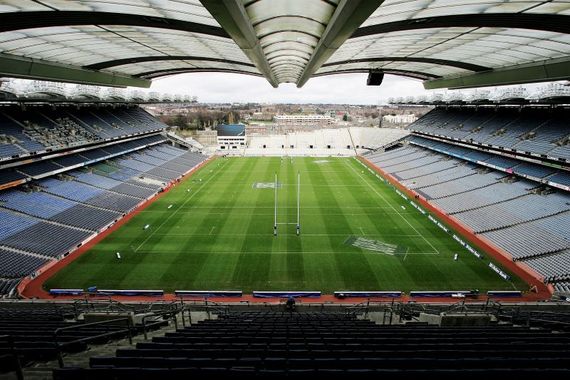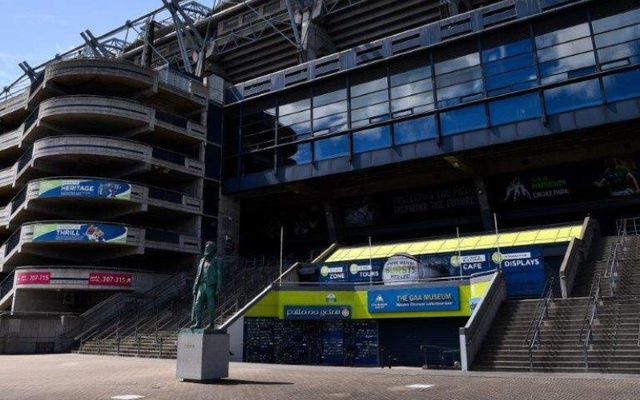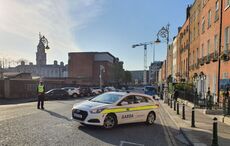Ireland’s Gaelic Athletic Association (GAA) has commenced a €12 million refurbishment of the Cusack Stand in Dublin’s Croke Park.
The refurbishment of the 27,000-capacity Cusack Stand in Croke Park will include replacing the seats in the stand and upgrading the conference center, suites, and bathrooms.
The heating system in the Cusack Stand will also be changed to make it more energy efficient.
The timeline for the refurbishment is six months, meaning it will likely be ready for the next GAA season.
The current Cusack Stand opened in 1996 as part of Phase One of the redevelopment of Croke Park; the original one was demolished after the 1993 All-Ireland Football Final.
The refurbishment has commenced more than two years after the GAA said in 2021 that it had suspended plans to upgrade the Cusack Stand at the outset of the pandemic.
The GAA has commenced a €12M refurbishment of @CrokePark's Cusack Stand which will include replacing the seats in the stand and upgrading the conference centre and suites among other works. #GAABelong
— The GAA (@officialgaa) November 8, 2023
Peter McKenna, Croke Park Stadium Director, told GAA.ie: “We do need to keep the building at an appropriate presentation for both our Monday to Friday clients but also for premium seat customers, suite holders, and the general GAA fan."
McKenna said that similar to a person's home, materials "have a certain life before you have to change it" and that it's "a constant upkeep, repair and maintenance."
He continued: "So, we’re doing a massive job in the Cusack terms of upgrading things that people might never see because they'll be covered up again.
“It also gives us an opportunity to reposition the Cusack Stand as a very important mid-sized conference centre compared to what we're doing in the Hogan side."
McKenna said the focus of the refurbished Cusack Stand will be on the "unsung heroes of the GAA," such as volunteers, mentors, coaches, and background staff.
"The men and women who have made the GAA great without a big song and dance about it," McKenna said. "I think that's probably in keeping with the Cusack as well.”
McKenna said the design team and various specialists have been appointed and that work will begin before Christmas to "make sure that we're finished and out the gap before the new season starts."
He added: “I think we're all really proud of Croke Park. It really is like a house, it's where we all belong. There's something just really special about the place so there will be a huge satisfaction when we complete these works.”

Inside Croke Park. (Getty Images)
McKenna separately told the Irish Independent that 250 reconditioned twin seats from Croke Park's stands are to go on sale.
"They might be suitable for people who have fond memories of some of the iconic moments over the last 28 years, in the case of the Cusack Stand," McKenna said.
He added: "People might have private bars or back gardens where they might like to have these original seats which will be reconditioned."
What is Croke Park?
Croke Park, Ireland's largest sporting arena and the home of the GAA, is not only at the center of Gaelic football, hurling, and camogie, but it’s also the heart of a major international community and the epicenter of Dublin city.
Croker, as it's known to the locals, first opened in 1884. In 1913, the GAA became the exclusive owners of the Jones' Road sports ground when it purchased the property for $4,633.54 (£3,500) from Frank Dineen.
The sports ground was renamed Croke Park after Archbishop Thomas Croke, one of the GAA’s first patrons.
On August 21, 1938, the first iteration of the Cusack Stand opened. It was named after Michael Cusack, the Co Clare native who formed the GAA with Maurice Davin in 1884.
#OnThisDay in 1847, Michael Cusack was born in Carran, Co. Clare. He would go on to form the GAA with Maurice Davin in 1884 in Thurles, Co.Tipperary. Today, the Cusack Stand is named is his honour as well as the statute outside our #GAAMuseum. pic.twitter.com/84bvNWUkZ7
— Croke Park (@CrokePark) September 20, 2019
Today, Croke Park - the fourth largest stadium in western Europe - can hold 82,300 people. Aside from Gaelic sporting events, Croke Park hosts major events, including concerts from some of the world's top performers.




Comments